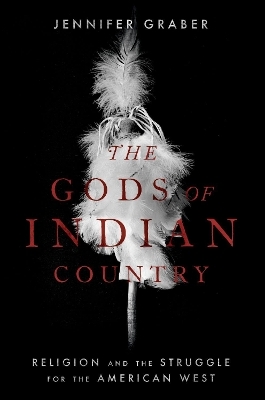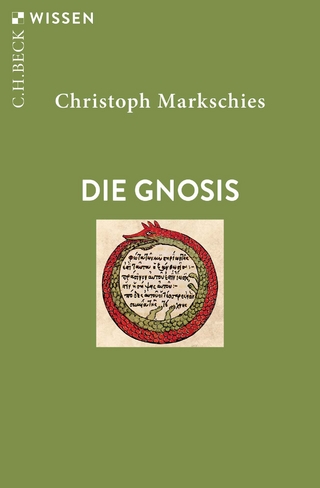
The Gods of Indian Country
Religion and the Struggle for the American West
Seiten
2022
Oxford University Press Inc (Verlag)
978-0-19-762544-6 (ISBN)
Oxford University Press Inc (Verlag)
978-0-19-762544-6 (ISBN)
During the nineteenth century, Anglo-Americans inflicted cultural and economic devastation on Native people. The fight over Indian Country sparked spiritual crises for both Natives and Settlers. In the end, the experience of intercultural encounter and conflict over land produced religious transformations on both sides.
During the nineteenth century, white Americans sought the cultural transformation and physical displacement of Native people. Though this process was certainly a clash of rival economic systems and racial ideologies, it was also a profound spiritual struggle. The fight over Indian Country sparked religious crises among both Natives and Americans.
In The Gods of Indian Country, Jennifer Graber tells the story of the Kiowa Indians during Anglo-Americans' hundred-year effort to seize their homeland. Like Native people across the American West, Kiowas had known struggle and dislocation before. But the forces bearing down on them-soldiers, missionaries, and government officials-were unrelenting. With pressure mounting, Kiowas adapted their ritual practices in the hope that they could use sacred power to save their lands and community.
Against the Kiowas stood Protestant and Catholic leaders, missionaries, and reformers who hoped to remake Indian Country. These activists saw themselves as the Indians' friends, teachers, and protectors. They also asserted the primacy of white Christian civilization and the need to transform the spiritual and material lives of Native people. When Kiowas and other Native people resisted their designs, these Christians supported policies that broke treaties and appropriated Indian lands. They argued that the gifts bestowed by Christianity and civilization outweighed the pains that accompanied the denial of freedoms, the destruction of communities, and the theft of resources. In order to secure Indian Country and control indigenous populations, Christian activists sanctified the economic and racial hierarchies of their day.
The Gods of Indian Country tells a complex, fascinating-and ultimately heartbreaking-tale of the struggle for the American West.
During the nineteenth century, white Americans sought the cultural transformation and physical displacement of Native people. Though this process was certainly a clash of rival economic systems and racial ideologies, it was also a profound spiritual struggle. The fight over Indian Country sparked religious crises among both Natives and Americans.
In The Gods of Indian Country, Jennifer Graber tells the story of the Kiowa Indians during Anglo-Americans' hundred-year effort to seize their homeland. Like Native people across the American West, Kiowas had known struggle and dislocation before. But the forces bearing down on them-soldiers, missionaries, and government officials-were unrelenting. With pressure mounting, Kiowas adapted their ritual practices in the hope that they could use sacred power to save their lands and community.
Against the Kiowas stood Protestant and Catholic leaders, missionaries, and reformers who hoped to remake Indian Country. These activists saw themselves as the Indians' friends, teachers, and protectors. They also asserted the primacy of white Christian civilization and the need to transform the spiritual and material lives of Native people. When Kiowas and other Native people resisted their designs, these Christians supported policies that broke treaties and appropriated Indian lands. They argued that the gifts bestowed by Christianity and civilization outweighed the pains that accompanied the denial of freedoms, the destruction of communities, and the theft of resources. In order to secure Indian Country and control indigenous populations, Christian activists sanctified the economic and racial hierarchies of their day.
The Gods of Indian Country tells a complex, fascinating-and ultimately heartbreaking-tale of the struggle for the American West.
Jennifer Graber is Associate Professor of Religious Studies at the University of Texas at Austin and an affiliated faculty member in the Native American and Indigenous Studies Program.
Acknowledgements
A Note on Terms
Abbreviations
Plates and Figures
Introduction
Part 1 - Open Lands
Chapter One
Chapter Two
Part 2 - Closed Lands
Chapter Three
Chapter Four
Chapter Five
Part 3 - Divided Lands
Chapter Six
Chapter Seven
Epilogue
Appendix A - Kiowa Names
Bibliography
| Erscheinungsdatum | 07.02.2022 |
|---|---|
| Verlagsort | New York |
| Sprache | englisch |
| Maße | 158 x 236 mm |
| Gewicht | 481 g |
| Themenwelt | Geisteswissenschaften ► Geschichte ► Regional- / Ländergeschichte |
| Geschichte ► Teilgebiete der Geschichte ► Religionsgeschichte | |
| Religion / Theologie ► Christentum ► Kirchengeschichte | |
| ISBN-10 | 0-19-762544-4 / 0197625444 |
| ISBN-13 | 978-0-19-762544-6 / 9780197625446 |
| Zustand | Neuware |
| Informationen gemäß Produktsicherheitsverordnung (GPSR) | |
| Haben Sie eine Frage zum Produkt? |
Mehr entdecken
aus dem Bereich
aus dem Bereich
Von den Anfängen bis zur Gegenwart
Buch | Hardcover (2022)
C.H.Beck (Verlag)
CHF 47,60
warum die Religionen erst im Mittelalter entstanden sind
Buch | Hardcover (2024)
C.H.Beck (Verlag)
CHF 53,20


